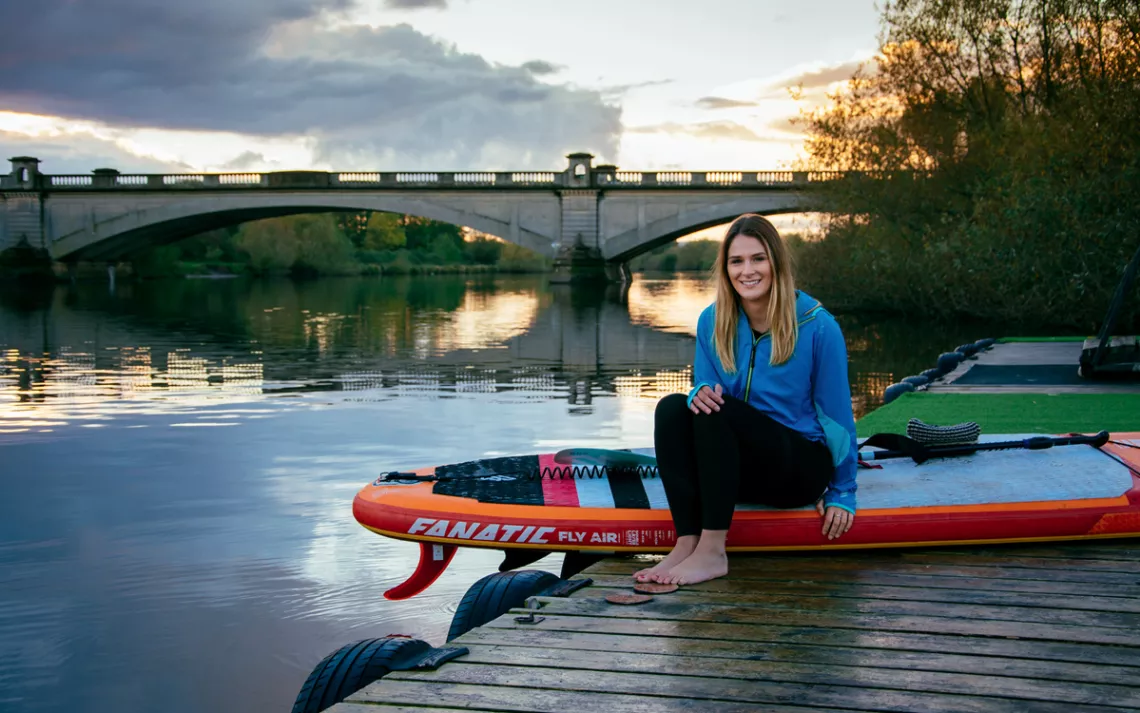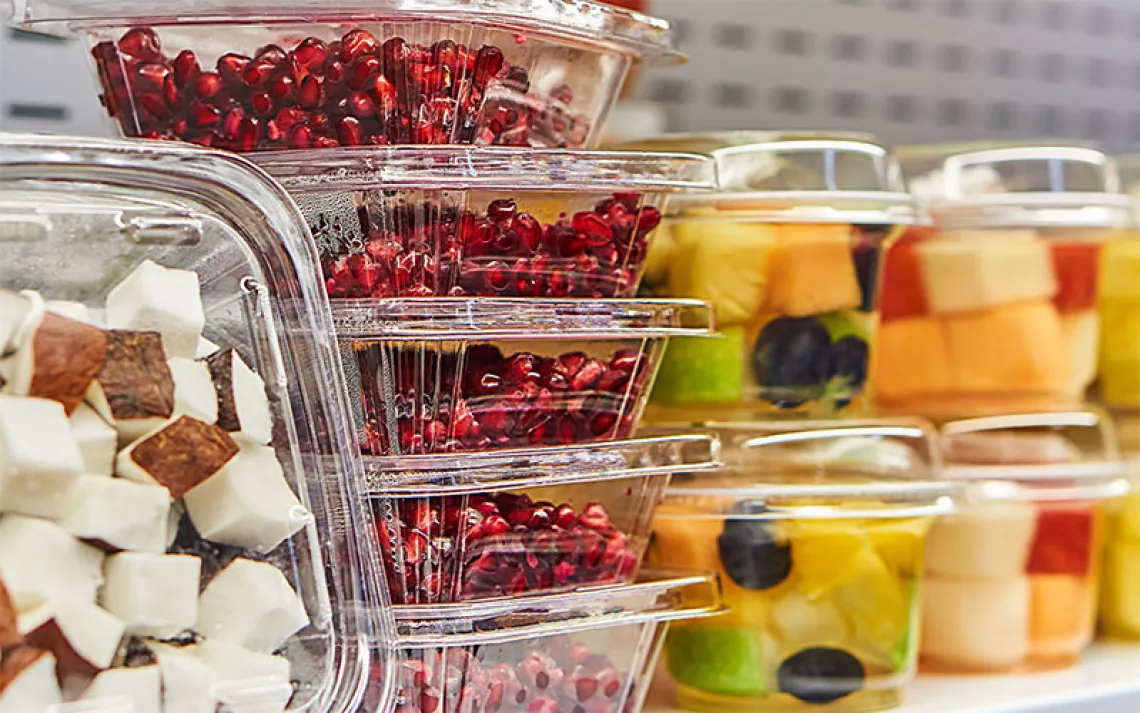A Paddleboarder's Quest for Cleaner Water
Lizzie Carr goes the extra mile to get rid of plastic pollution

More than 1,000 people have participated in Lizzie Carr's paddleboard cleanups. | Photo by Andy Hargraves
In 2013, Lizzie Carr was working at a creative agency in London and living what she calls a fairly normal life. Then she was diagnosed with thyroid cancer. She had just turned 26. After an emergency thyroidectomy and radiotherapy, Carr went to her father's house on the Isles of Scilly, off the UK's southwest coast, to recuperate. There, she tried paddleboarding, hoping to regain her strength. Out on the water, she says, she experienced an unexpected peace of mind. She was hooked.
When she recovered, Carr found herself craving a larger purpose. Back in London, she took to the city's many waterways to figure things out. As she paddled, she was disturbed by the ubiquitous plastic trash she encountered, and she could see the impact it was having on wildlife. (Once, she saw a bird's nest made entirely of plastic.) Other people, she decided, needed to be aware of it too.
In May 2016, Carr loaded a borrowed board with camping gear and set off to paddle the length of England (400 miles) by river and canal. For 22 days, she photographed every piece of plastic she saw⎯mostly bottles, bags, and wrappers⎯then geotagged it and charted it on an online map. She picked up what she could.
Carr shared the images on social media, and several news outlets carried the story. She attracted a following of people eager to get involved. That summer, she organized paddleboarding cleanups in areas where she'd found high concentrations of trash. About 250 people participated; since then, about 1,000 more have taken part in her plastic patrols.
The following year, Carr became the first woman to paddleboard solo across the English Channel. This time she dragged along a sampling net to collect water for analysis in a lab. The results revealed hundreds of pieces of microplastic in each sample. Last fall, Carr paddleboarded the length of the Hudson River and worked with a team to analyze the plastics she found. "I've always used technology as best I can," Carr says. "It's not just about picking this stuff up but about collecting evidence to try to drive change."
This article appeared in the March/April 2019 edition with the headline "Paddleboard Patrol."
TRASH TALK
Half of all plastic becomes garbage in less than a year.
 The Magazine of The Sierra Club
The Magazine of The Sierra Club



